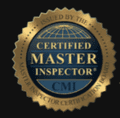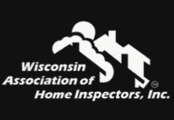



















| # | Question | Answer |
|---|---|---|
| 1 | What does a home inspection cover? | Inspections typically include the homes major systems such as foundation, basement, structural components, roof, windows, heating, air conditioning, plumbing, electrical, attic insulation, walls, ceilings, floors, and doors. |
| 2 | How much does a home inspection cost? | Costs vary, but in southeastern Wisconsin, expect to pay between $350 to $550 for standard inspections. |
| 3 | How long does a home inspection take? | A standard inspection takes between about 3 to 4 hours, though this can vary with the home size and age. |
| 4 | Do I need to be present during the inspection? | Attendance isn’t required but is often recommended for first time home buyers to gain firsthand insights. |
| 5 | Can a home fail an inspection? | An inspection is an assessment, not a pass/fail test. |
| 6 | What’s the difference between a home inspection and an appraisal? | An inspection evaluates condition, an appraisal determines market value. |
| 7 | Should I have a newly built home inspected? | Yes, new homes can also have defects. |
| 8 | Can the inspector provide repair costs? | Inspectors may provide estimates, but getting quotes from contractors is best. |
| 9 | What if the inspection report reveals problems? | Issues are common and can often be used to negotiate with the seller. |
| 10 | Are home inspectors licensed in Wisconsin? | Inspectors and Wisconsin must be credentialed and comply with state regulations. |
| 11 | Do home inspectors check for mold? | Mold “may” be noted if observed, but it is not required. Mold testing or sampling requires pre-authorization in your Offer to Purchase. |
| 12 | Does the inspector check for asbestos or lead-based paint? | These require specialized testing and are not included in standard inspections. |
| 13 | What’s not included in a standard home inspection? | Specialized systems like swimming pools, septic tanks, pests and more are not included within the scope of a home inspection. |
| 14 | Can I ask the seller to make repairs based on the inspection report? | Yes, it’s common to negotiate repairs or credits post-inspection. |
| 15 | Is a radon test included in the inspection? | Radon “testing” usually requires an additional fee and is not part of a standard inspection. |
| 16 | Do home inspectors check the appliances? | Testing appliances is not within the scope of a home inspection. Some appliances may be checked for basic functionality at the discretion of the inspector. |
| 17 | Will the home inspector check the roof? | The roof is inspected, but the method will depend on safety and conditions. Since climbing roofs is not required, drone inspections are becoming more popular. |
| 18 | How will I receive the inspection report? | Inspection reports are typically delivered digitally via email, with printed copies available on request. |
| 19 | Are there any additional inspections you recommend? | Additional inspections such as sewer scope, termite inspection or chimney inspection may be wise or suggested based on a home’s specifics. |
| 20 | If the house has had significant repairs or renovations, can the inspector tell if they were done properly? | Inspectors can often spot subpar work, but detailed evaluation of significant repairs or renovations might require reviewing permits or specialist evaluations. |










